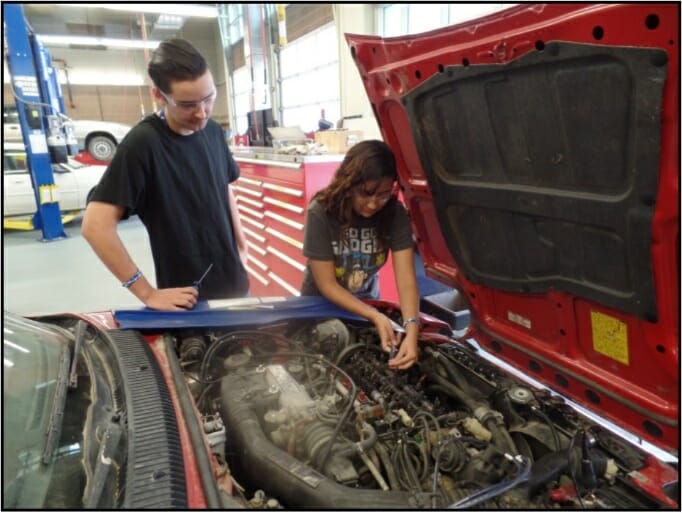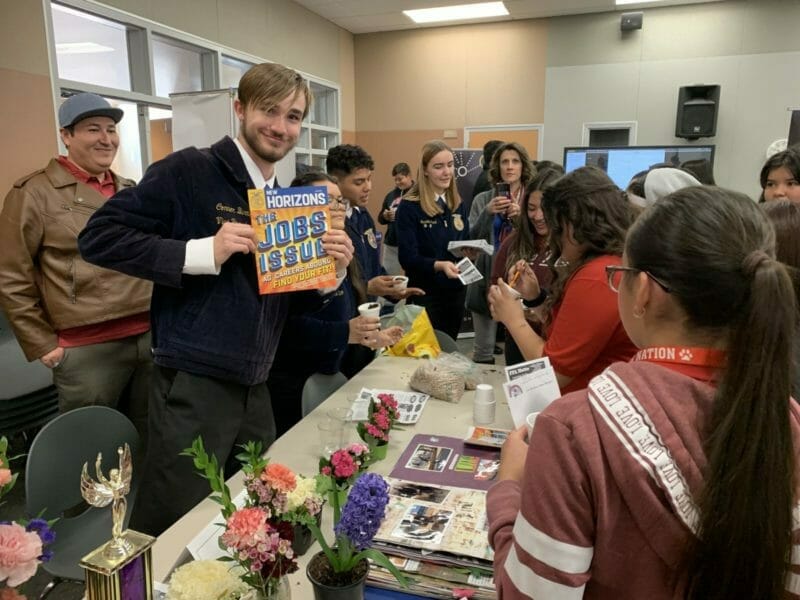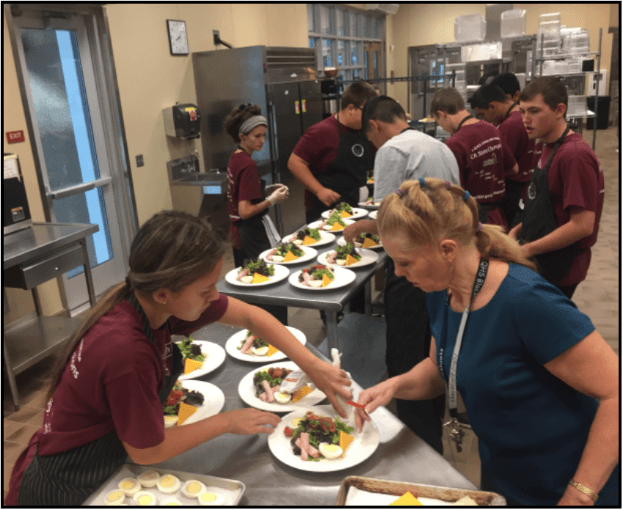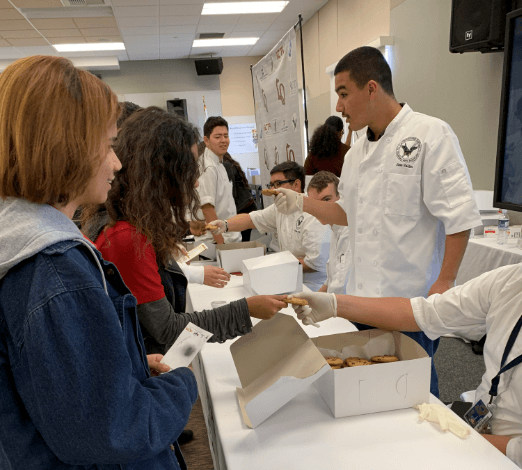Career Technical Education has not only seen a resurgence in our high schools, it has also been a viable way of redefining high schools.
No longer are students tracked through vocational education that merely prepares them for one job, rather, there is a concerted effort to connect academic coursework and the expectations in the industry.
By aligning skill attainment and academics, students are no longer faced with choosing between college or a technical trade, thus providing students more options after high school. According to the Association for Career and Technical Education (ACTE) and the U.S. Department of Education, high school students involved in Career Technical Education are more engaged, perform better, and graduate at higher rates.
- 93 percent of California Career Technical Education high school students graduate compared to an average national freshman graduation rate of 80 percent
- 88 percent of California Career Technical Education postsecondary students earned a credential, certificate or degree
- More than 75 percent of secondary Career Technical Education concentrators pursued postsecondary education shortly after high school.
 In Desert Sands, it is our mission to provide challenging career technical education programs ensuring every student graduates college, and is career and life ready. Below are examples of some of the exemplary Career Technical Education programs in place or under development in our district.
In Desert Sands, it is our mission to provide challenging career technical education programs ensuring every student graduates college, and is career and life ready. Below are examples of some of the exemplary Career Technical Education programs in place or under development in our district.
Animal Science Pathway – Students explore the necessary elements, such as diet, genetics, habitat, and behavior, to create humane, ecologically, and economically sustainable animal production systems.
Automotive Pathway – This program is designed to develop and increase the knowledge and skills of students in the areas of automotive system operation, maintenance, and repair. The program, which is NATEF certified, offers courses that prepare individuals for the Automotive Service Excellence (ASE) certification.
Aviation Pathway – Students participating in the this academy focus on several aspects of aviation including the evolution of flight, navigation and control, flight fundamentals, aerospace materials, propulsion, and maintenance.
Culinary Arts Pathway – This pathway prepares students to apply technical knowledge and skills required for food production and service occupations. Students completing this program will possess the technical knowledge and skills required for planning, selecting, storing, purchasing, preparing, and serving.
Education Careers Pathway – Those enrolled in this field learn the technology, classroom management, student assessment, communications, and other skills needed to support the learning activities of all students.
Energy & Utilities Pathway – Designed to introduce students to the power industry, students gain an understanding of the various energy sources, energy forms, energy principles, efficiency concepts, and electricity. This program is aligned with the Project Lead the Way (PLTW) curriculum.
Engineering & Design Pathways – Engineering pathway students apply engineering, science, math, and technology to solve complex, open-ended problems in a real-world context. They focus on electric power systems, grid operation, and renewable energy sources.
Film and Media Pathways – These programs develop student skills in the areas of film-making, graphic design, audio production, broadcast, animation, and leadership in preparation for post-secondary education and careers in the arts, media, and entertainment industry.
Health Academies – Students are introduced to a variety of medical related fields with focus on areas including human body systems, infectious diseases, medical treatment, medical mysteries, and medical interventions. Topics include research processes, bioinformatics, HIPAA, and human medicine.
Health and Nutritional Sciences Academy – Students study the basic laws of chemistry, microbiology, and physics as applied to nutrition, the importance of food choices, and the relationship to wellness.
Information Technology Pathway – Students in this pathway are exposed to the design, development, support, and management of hardware, software, multimedia, and systems integration services.
Ornamental Horticulture Pathway –Students acquire knowledge regarding plant propagation, pest management, plant identification, and basic ornamental horticulture skills and practices such as plant identification, selection and usage.
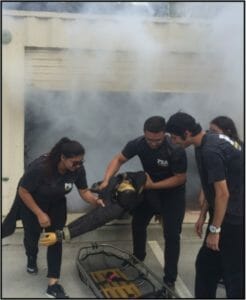 Public Service Academy – This academy is designed to prepare students for careers in legal, public safety, protective services, and homeland security, including professional and technical support services.
Public Service Academy – This academy is designed to prepare students for careers in legal, public safety, protective services, and homeland security, including professional and technical support services.
Technology & Landscape Management Academy – Students experience all aspects of the landscape industry, including safety, plant identification, analyzing landscape sites, designing the landscape, selecting plants for the design, and pruning.
Desert Sands Unified is committed to our Career Technical Education programs and are continually seeking to strengthen them through industry and community partnerships.
For more information, please contact Deanna Keuilian at Deanna.keuilian@desertsandsus or follow on Twitter @DSUSD_CTE.
You can also take a brief look at our Career Technical Education programs by clicking here.
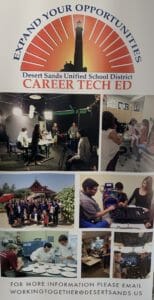
Photo Captions:
The Second Annual Career Technical Education Program Showcase was held on Feb. 5. Eighth-grade students from the seven Desert Sands Unified School District middle schools attended.
As a district of choice, 8th graders have the option of requesting enrollment at any DSUSD high school. This practice allows them to select a Career Technical Education program that fits their interests and talents.

